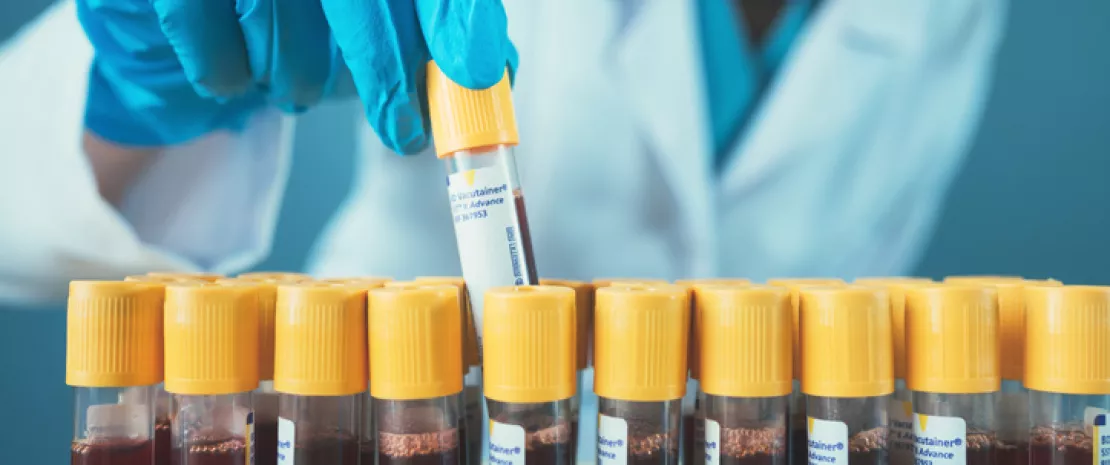Could blood be used as an indicator of gut microbiota diversity?
What if a simple blood test, and the analysis of some carefully chosen metabolites, could predict a large part of the gut microbiota diversity...and therefore our health status?
Lay public section
Find here your dedicated section
Sources
This article is based on scientific information

About this article
We now know that a lesser microorganism diversity in the gut microbiota is associated to disorders such as diabetes mellitus, colorectal cancer, and complex gastrointestinal disorders such as chronic inflammatory bowel diseases (IBD). But in order to use this diversity as a biomarker, a proper picture of this diversity is required: fecal metabolites are an indicator of the microbiota composition, but what about blood metabolites?
40 predictive metabolites were identified
To find out, a team tried to predict the gut microbiota diversity based on 1,000 blood analytes in a cohort composed by 399 healthy American adults enrolled in a wellness program. The results show that 40 metabolites found in the host’s blood, of which 13 are of microbial origin, explain 45% of the gut microbiota diversity, and could thus predict it. The predictive capability of metabolites was confirmed in a different validation cohort including 540 people, who were more or less healthy.
Neither too much, nor too little diversity
Moreover, results suggest that instead of maximum diversity, optimal diversity should be prioritized to stay healthy. On the one hand, an association between polyphenol microbial metabolites and gut microbiota diversity has been observed, which could reflect a diet with a high content of fruits, vegetables and cereals (which in turn have a high content of polyphenols); and on the other hand, some microbial metabolites that predict diversity are related to cardiovascular or renal disorders. As a result, not only a lack of diversity but also an excess of it could turn out to be harmful, to the point where the authors mentioned the idea of an ideal range, characterized by “neither too much nor too little” diversity depending on the body mass index (BMI) value. Finally, the authors highlighted that associations between blood metabolites and gut microbiota diversity were not the same along the continuum of BMI, which suggests that limiting the analysis to “normal” and “obese” categories is too restrictive.
Towards clinical tests?
As a whole, these results attest to the close relationship between the host’s physiology and the gut microbiota, and suggest that the host’s blood metabolome is a major interface between the gut ecosystem and human health. Eventually, the ability of plasma markers to predict the gut microbiota diversity could open the way to the development of clinical tests to monitor the gut microbial health, through a simple blood sample, easy to handle.





